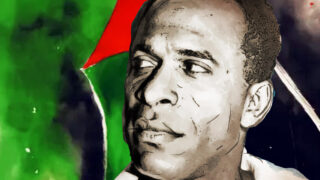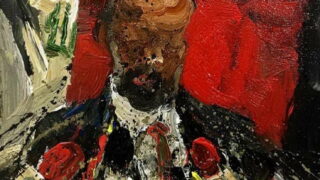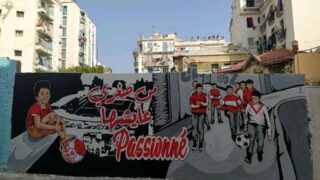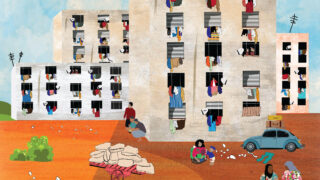Fourth months after legislative elections were held in Algeria on May 10, 2012, President Abdelaziz Bouteflika has appointed a new prime minister. The position was given to Abdelmalek Sellal, who previously served as the minister of water resources. The Algerian president has used this occasion to remove some unpopular ministers, and to make a number of changes within ministerial posts. According to authorities, these changes were nothing exceptional in "calm Algeria." However, for other observers, they represent a serious disruption.
The "new government" greatly resembles its predecessor, to the extent that the Algerian public considers its formation insignificant. However, this has not prevented observers from sounding the alarm bells. They warn that the Algerian regime — like any other regime — does not realize the importance of maintaining "national" interests in the reform process. It is in Algeria's interest to ensure that this reform does not come from abroad, or is not implemented by foreign elements. Algeria now has a new prime minister — a genuine product of the current administration — and no one knows anything about his partisan affiliations or his specific "political conviction." Sellal, who is 68 years old, served as the campaign manager for Bouteflika's presidential run in 2004. He is completely unknown, to the extend that the best Algerian journalists are content with referring merely to his sense of humor and his penchant for telling a "joke of the day."
Sellal's long career — he was a governor, then an ambassador and now a minister — places him in the category of government employees who seamlessly transition from one regime to the next, without distinguishing between them. The new prime minister lacks political clout, to the extent that local media outlets have focused more attention on the outgoing prime minister, Ahmed Ouyahia. The latter himself was also a longtime civil servant, however with more political influence, due to his well-known proximity to the Algerian security establishment. Did Ouyahia leaving office mark the end of his political career, or was it rather the beginning of preparations to succeed Bouteflika, who is supposed to finish his term in 2014?
Ouyahia is the darling of officials within the "establishment," and if the choice were up to them he would be the perfect president. He is a strong man who enforces decisions without hesitation, and he is capable of radically changing his positions overnight if the "regime" requests this of him. This relationship is purely bureaucratic, since Ouyahia is of course not an ideological man or a man of convictions. It was certain that he would not enjoy widespread popularity, ever since his feet were thrust into the saddle of power during the era of President Liamine Zeroual in the mid-1990s during the civil war.
The president and the decision makers
This lack of popularity reduces the likelihood of Ouyahia being appointed at the hands of the security apparatus, which is throwing all of its weigh into the political game. The "regime" — as Algerians refer to it — is still against institutional changes that would lead to an actual transfer of sovereignty to the people. However — even in such a situation — power would still be imposed, with major political and strategic decisions being made during endless talks between the president and "major decision makers." The latter of which includes military officials and — to an increasing extent — financial powers linked to the regime itself. However, one of the effects of the civil war in the 1990s — which resulted in a standstill of the electoral process that stopped the Islamic Salvation Front from coming to power at the time — is that these "decision makers" were eager to give credibility to any decision they took. Therefore, the imposition of Ouyahia as president of the republic — despite his clear lack of popularity — would only be achieved through force. Thus, after leaving his post as prime minister, is Ouyahia capable of doing the "nearly impossible" and changing his public image to such a degree? This is the question that has been posed by Algerian media outlets, after previously only talking about the "supposed" contender for the presidency.
The regime has been eager to make it appear as though the legislative elections are more important than the November 1st Revolution of 1954, and to give the impression that these elections are a means of confronting foreign intervention. However, more perceptive analysts viewed the replacement of the prime minister as a merely cosmetic change, as well as a worrying sign of the country's political paralysis. These "decision makers" definitely realize the need for reform. However, since no branch of the regime has succeeded in imposing its hegemony over the others, no decisions will be taken and things will stay as they are. Furthermore, this "indecisiveness" has become possible thanks to the relative financial security enjoyed by Algeria. The country has financial reserves estimated at $200 billion, in addition to $70 billion available through import management funds. This has allowed the regime to "buy" relative social peace, for the price of expanding general expenditures. This increase in expenditures prompted the Algerian central bank to issue a warning. The bank warned that if this behavior persists, then a drop in oil prices to less than $100 per barrel would be enough to upset the balance in the general budget. Yet, regardless of whether or not this happens, the Algerian budget is already unbalanced and the country has had to resort to its receives to finance this deficit. However, the price of oil remains at an acceptable level, which allows the government to persist with its ways.
Factors contributing to a deadlock
Another factor contributing to the current "deadlock" — and the conviction that Algeria cannot be dealt with in the same way that Syria has been dealt with — is the situation in the Sahel region. Western military intervention in Libya has led to a sharp increase in the flow of weapons and militants into this region, which has caused severe problems for the balance of power. The Malian army was defeated in the north of the country by a group of Islamist Taureg rebels. These rebels belong to the Islamist Ansar Dine group, which is allied with Salafist jihadist groups including al-Qaeda in the Islamic Maghreb and the Movement for Oneness and Jihad in West Africa [MUJAO].
This new Islamic emirate raises concerns both in the region as well as in the West. All officials — including those from Africa, Europe and the United States — have stressed the "importance" of Algeria's role. Moreover, a number of these officials have publicly stated that they expect the Algerian army will go to northern Mali to impose security in the region. These statements have caused panic for a number of Algerian analysts, who fear that pushing the Algerian army into this conflict would be like pushing them onto quicksand. However, at the geopolitical level — at least in the opinion of the authorities — the situation in the Sahel region is something that the Algerian regime cannot ignore. Thus, in the view of the Algerian authorities, there is not an "urgent need" for immediate internal reform. The authorities have made their views clear by waiting four months before making these purely cosmetic governmental changes. Everyone in Algeria knows that Bouteflika is not capable of doing what Egyptian President Mohammed Morsi did, when he [forced top military generals to retire]. Bouteflika does not come from the ranks of the opposition, he did not reach the presidency as a result of an Algerian "Tahrir Square" that would allow him to adjust the roles of army generals. Analysts — particularly those in the West — are often guilty of making baseless assumptions regarding the power balance between Bouteflika and the security establishment. While these analysts often view this relationship as a case of conflict, in actuality these parties work off of one another and constantly overlap.
A deceptive calm
From the point of view of the security establishment, Bouteflika is working to "preserve" the regime through making a number of necessary concessions, even if these concessions are being made to foreign powers and companies. Presently, Algeria is almost non-existent in the international arena. Algerian society — which was exhausted by the civil war in the 1990s — no longer possesses the necessary social forces to fight against this system and develop a clear alternative. Although there have been many protest movements, they express themselves in a disorganized manner and resort to violence and rioting. From a political perspective, these movements do not constitute a threat to the regime. Thus, in light of a number of complex factors, the Algerian authorities are under the illusion that Algeria is experiencing "calm days." However, more discerning people — is not long able to institute reform from within. This regime is on the verge of letting foreign powers impose reform upon Algeria.
In Algiers, analysts often point out that the Syria of today is the Algeria of yesterday, only without the intense foreign support for the opposition. An old officer in the Algerian security services, Mohammed Shafiq Misbah, commented on the recent changes within the government. Misbah said that "the crisis lies in the ruling regime, not in the formation of the government." The opposition website La Nation warned of "the fruitlessness of the illusion that the government — as well as the opposition — is living under." Algeria is "calmer than it should be." However, this deceptive calm forebodes a troubled future.
Translated by Al-Monitor




